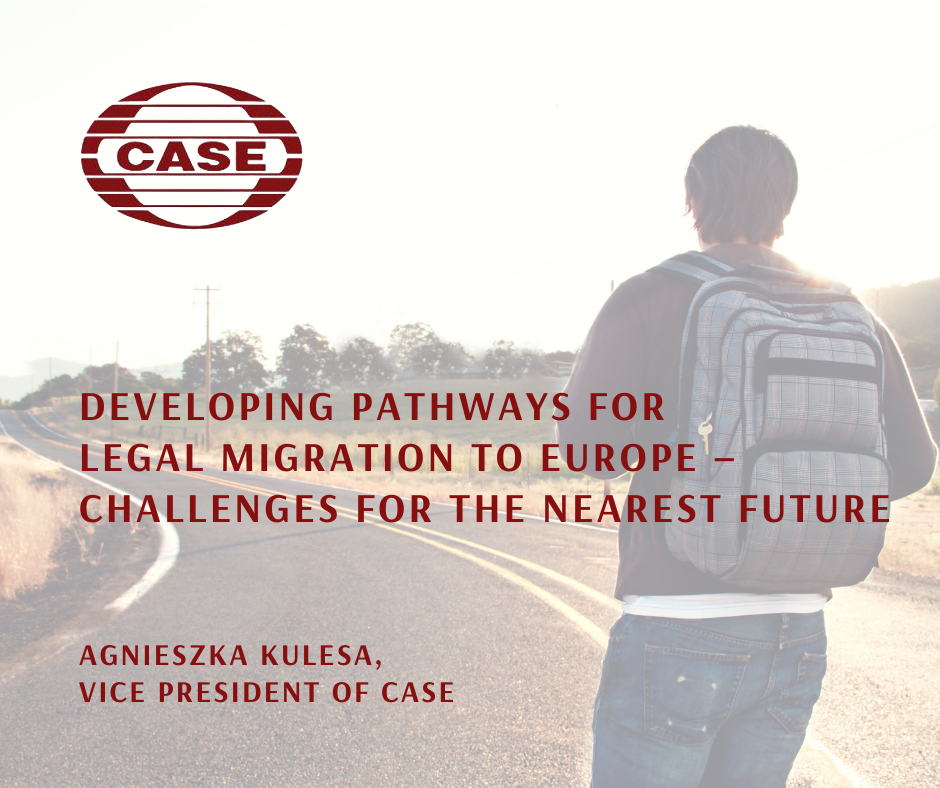Developing Pathways for Legal Migration to Europe – Challenges for the Nearest Future

"Cooperation on labour migration between the European Union (EU) member states and partner countries in the Mediterranean has been predominantly based on bilateral agreements, including those relating to circular migration. This trend will most likely be continued, regardless of any dedicated solutions introduced at the EU level. If new EU initiatives such as Talent Partnerships are to complement and diversify the member states’ portfolios of legal measures, they have to take into account the needs of all sectors of the EU economy, including those which require low-skilled workforce. Still, no legal migration pathway, irrespective of its comprehensiveness, will work without an agile visa policy in place as well as strong and trusted implementing partners on the end of the sending countries"
Read Agnieszka Kulesa's, Vice President of CASE, full opinion that was published at the survey “Towards sustainable and mutually beneficial migration partnerships in the Southern Mediterranean” launched by The European Institute of the Mediterranean (IEMed) within the framework of the project “EuroMeSCo Connecting the dots” and the International Centre for Migration Policy Development (ICMPD) within the project “EuroMed Migration 5”. The survey was an exercise which aimed to reflect on improving migration partnerships between the EU and the Southern Mediterranean countries.
